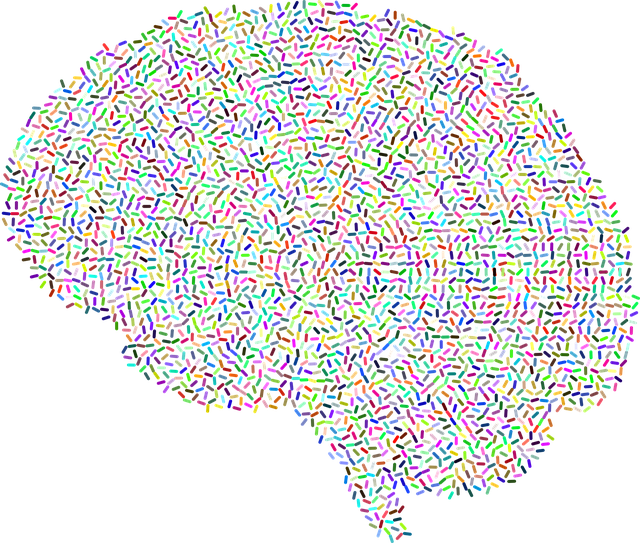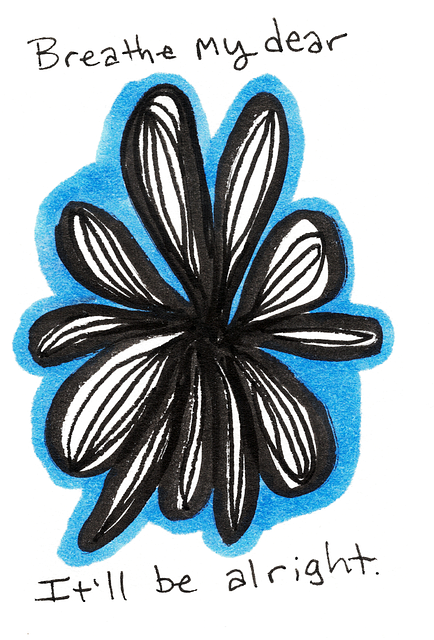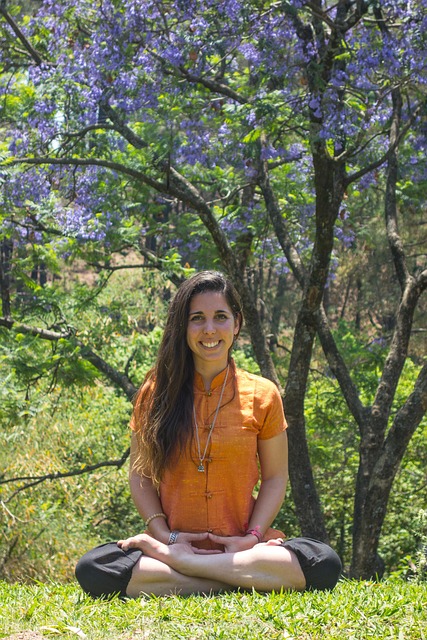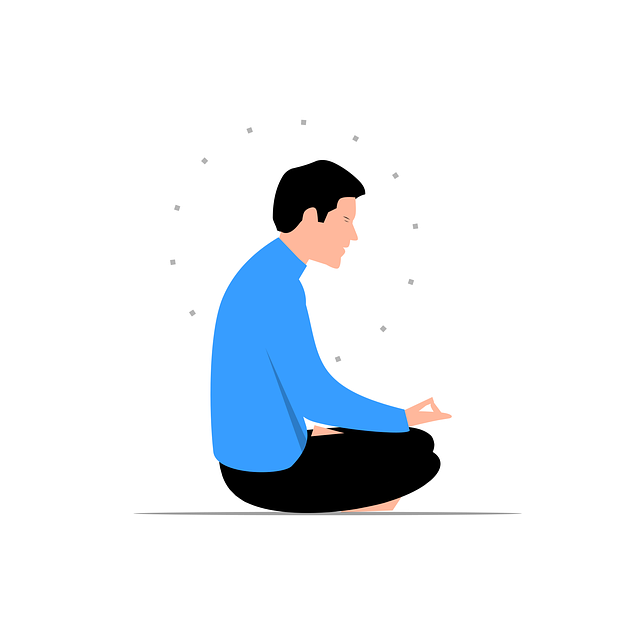Cognitive Behavioral Therapy (CBT), combined with compassion cultivation practices like mindfulness and self-compassion, is an effective holistic approach for anxiety management in Arvada psychosis therapy. This method addresses negative thought patterns, enhances emotional resilience, and promotes lasting improvements in mental well-being, backed by Mental Health Policy Analysis. Mindfulness, gaining prominence in modern mental health care, teaches individuals to focus on the present, detach from anxious thoughts, and cultivate non-judgmental awareness. Positive lifestyle adjustments, including nutritious diets, regular exercise, and adequate sleep, alongside traditional therapies like Arvada Psychosis Therapy, target anxiety disorders' root causes, reducing symptoms, boosting self-esteem, and promoting mental well-being.
Anxiety is a common yet complex mental health issue, often characterized by overwhelming fear and worry. Understanding anxiety disorders, such as Arvada psychosis, is crucial for effective management. This article explores various techniques to combat anxiety, offering insights into Cognitive Behavioral Therapy (CBT) as a powerful tool, the benefits of mindfulness and meditation, and how lifestyle adjustments can significantly improve well-being. Discover practical strategies for managing anxiety and embracing a calmer life through proven Arvada psychosis therapy methods.
- Understanding Anxiety: Unraveling the Complexities of Arvada Psychosis
- Cognitive Behavioral Therapy (CBT): A Powerful Tool for Managing Anxiety
- Mindfulness and Meditation: Finding Calm in a Chaotic World
- Lifestyle Adjustments: Nurturing Well-being Through Diet, Exercise, and Sleep
Understanding Anxiety: Unraveling the Complexities of Arvada Psychosis

Anxiety, a common yet complex emotion, often manifests as Arvada Psychosis, characterized by intense fear and worry. Understanding this condition is crucial for effective management. It involves more than just addressing surface-level symptoms; it requires unraveling the intricate web of physiological, psychological, and environmental factors that contribute to it.
Arvada Psychosis Therapy focuses on empowering individuals with tools like positive thinking, emotional regulation, and resilience building. These techniques help in modifying thought patterns, managing physical responses to stress, and cultivating a mindset that fosters mental fortitude. By tackling anxiety at its core, these strategies enable individuals to navigate life’s challenges more effectively, ultimately leading to improved overall well-being.
Cognitive Behavioral Therapy (CBT): A Powerful Tool for Managing Anxiety

Cognitive Behavioral Therapy (CBT) has emerged as a powerful tool in the arsenal of anxiety management techniques. This evidence-based approach focuses on identifying and changing negative thought patterns that contribute to anxious feelings. By challenging distorted thoughts and replacing them with more realistic, balanced perspectives, CBT helps individuals gain control over their emotions and behaviors. For those seeking Arvada psychosis therapy, CBT offers a structured and effective framework for managing anxiety disorders, promoting lasting improvements in mental well-being.
Incorporating compassion cultivation practices alongside CBT can further enhance its benefits. Developing inner strength through mindfulness exercises and cultivating self-compassion encourages individuals to embrace their experiences without judgment, fostering resilience against anxious urges. While these techniques might not be part of traditional CBT, they complement the process by addressing the emotional and spiritual aspects of anxiety management. This holistic approach, which also resonates with aspects of Mental Health Policy Analysis and Advocacy, empowers individuals to take charge of their mental health in a supportive and empowering environment.
Mindfulness and Meditation: Finding Calm in a Chaotic World

In today’s fast-paced world, where chaos and stress can often feel overwhelming, mindfulness and meditation offer a sanctuary of calm. These ancient practices have gained prominence in modern mental health care, including Arvada psychosis therapy. By focusing on the present moment and cultivating non-judgmental awareness, individuals can learn to detach from anxious thoughts and reduce their impact. Mindfulness encourages people to observe their feelings and sensations without reacting impulsively, fostering a sense of control and tranquility.
Meditation further enhances this process by training the mind to quieten and concentrate, thereby reducing anxiety’s physical and mental symptoms. Regular practice has been linked to improved emotional regulation, enhanced self-awareness, and better stress management. Moreover, incorporating mindfulness techniques can significantly support professionals in the mental health field, as evidenced in risk assessment studies for mental health practitioners, where it aids in maintaining resilience and preventing burnout. This holistic approach promotes positive thinking and strengthens one’s ability to navigate life’s challenges with a calmer mindset, reinforcing the mind over matter principles that underpin effective anxiety management.
Lifestyle Adjustments: Nurturing Well-being Through Diet, Exercise, and Sleep

Anxiety management begins with making positive lifestyle adjustments. Nutritious diet plays a significant role in managing anxiety by ensuring your brain receives the right fuel. Incorporating regular physical activity, such as aerobic exercises or yoga, can help reduce stress and promote mental well-being. Adequate sleep is another crucial component; it allows the body to rest and recover, enhancing resilience against anxious thoughts.
These holistic approaches complement traditional therapies like Arvada Psychosis Therapy, which targets the root causes of anxiety disorders. By combining these lifestyle changes with professional support, individuals can effectively reduce symptoms, enhance self-esteem, and overcome mental illness stigma reduction efforts. This dual approach not only alleviates immediate distress but also fosters long-term coping strategies for stress reduction methods.








